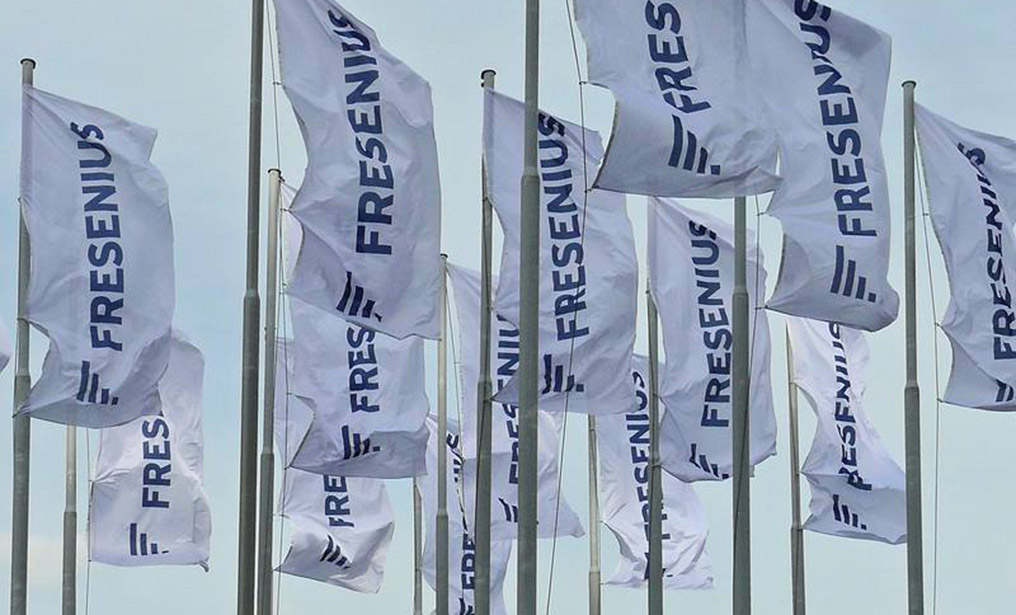Paul, Weiss Attorneys Win Right for Fresenius to Scrap $4.3B Deal to Buy Akorn
Paul Weiss partner Lewis R. Clayton defended the ruling before all five justices of the state's high court, saying that Akorn had "collapsed" under the weight of its regulatory compliance problems after agreeing to the $34-per-share buyout in early 2017.
December 07, 2018 at 03:01 PM
3 minute read
The original version of this story was published on Delaware Business Court Insider
 Photo: Fresenius/Facebook
Photo: Fresenius/Facebook
The Delaware Supreme Court on Friday upheld a landmark Chancery Court decision allowing Fresenius SE & Co. to walk away from its $4.3 billion deal to buy generic drugmaker Akorn Inc. based on a “material adverse change” in Akorn's business.
The ruling was a win for Fresenius' Paul, Weiss, Rifkind, Wharton & Garrison attorneys, who had argued that a raft of regulatory issues at Akorn had justified their client's decision to scrap the merger.
Paul Weiss partner Lewis R. Clayton on Wednesday defended the ruling before all five justices of the state's high court, saying that Akorn had “collapsed” under the weight of its regulatory compliance problems after agreeing to the $34-per-share buyout in early 2017.
In Delaware, the bar for proving a material adverse change is high, and judges have historically been inclined to hold buyers to their deals. The Chancery Court's Oct. 1 decision was the first in the state to allow a potential buyer to escape its merger obligations based on a finding that one had occurred.
Akorn's counsel from Cravath, Swaine & Moore countered on appeal that Fresenius had simply suffered a typical case of buyers remorse, and that Vice Chancellor J. Travis Laster's ruling essentially “rewrote” Delaware law by loosening the materiality standard to permit known risks to constitute a material adverse change and adopting a “less onerous” standard for material breach of a covenant.
Delaware Supreme Court Chief Justice Leo E. Strine Jr., however, sided with Fresenius in a 3-page order Friday, just two days after appellate arguments in Dover.
“We conclude that the record adequately supports the Court of Chancery's declaration that Fresenius properly terminated the merger … because Akorn's breach of its regulatory representations and warranties gave rise to an [material adverse effect] and Fresenius had not itself engaged in a prior, material breach of a covenant that would have prevented Fresenius from exercising its immediate termination right under the merger agreement,” Strine wrote.
The order did not expound on the justices' thinking behind what exactly amounts to a material adverse change in a firm's business under Delaware law.
An attorney for Akorn did not immediately return a call Friday seeking comment on the ruling.
Fresenius had pulled out of the deal in April, after receiving letters from anonymous whistleblowers last year raising major concerns about Akorn's quality compliance programs and its failure to meet regulatory requirements. Fresenius conducted its own investigation of the whistleblower allegations, revealing that Akorn executives, including its head of quality control either altered data or provided false test data to the U.S. Food and Drug Administration in applications for new generic drugs.
A later probe by the FDA resulted in Akorn recalling its sterile eye drop after they failed quality testing.
Alster said in his October opinion that Akorn's performance has since fallen “off a cliff,” with revenue down 29 percent in July 2017 and operating income down 84 percent from the year prior.
As of 1 p.m. Friday, Akorn's stock was trading at $4.32 per share, down 22 percent from the start of the session.
This content has been archived. It is available through our partners, LexisNexis® and Bloomberg Law.
To view this content, please continue to their sites.
Not a Lexis Subscriber?
Subscribe Now
Not a Bloomberg Law Subscriber?
Subscribe Now
NOT FOR REPRINT
© 2025 ALM Global, LLC, All Rights Reserved. Request academic re-use from www.copyright.com. All other uses, submit a request to [email protected]. For more information visit Asset & Logo Licensing.
You Might Like
View All

Family Law Practitioners Weigh In on Court System's New Joint Divorce Program

Former NY City Hall Official Tied to Adams Corruption Probe to Plead Guilty

New Charges Expected in Sex Trafficking Case Against Broker Brothers
Trending Stories
- 1ACC CLO Survey Waves Warning Flags for Boards
- 2States Accuse Trump of Thwarting Court's Funding Restoration Order
- 3Microsoft Becomes Latest Tech Company to Face Claims of Stealing Marketing Commissions From Influencers
- 4Coral Gables Attorney Busted for Stalking Lawyer
- 5Trump's DOJ Delays Releasing Jan. 6 FBI Agents List Under Consent Order
Who Got The Work
J. Brugh Lower of Gibbons has entered an appearance for industrial equipment supplier Devco Corporation in a pending trademark infringement lawsuit. The suit, accusing the defendant of selling knock-off Graco products, was filed Dec. 18 in New Jersey District Court by Rivkin Radler on behalf of Graco Inc. and Graco Minnesota. The case, assigned to U.S. District Judge Zahid N. Quraishi, is 3:24-cv-11294, Graco Inc. et al v. Devco Corporation.
Who Got The Work
Rebecca Maller-Stein and Kent A. Yalowitz of Arnold & Porter Kaye Scholer have entered their appearances for Hanaco Venture Capital and its executives, Lior Prosor and David Frankel, in a pending securities lawsuit. The action, filed on Dec. 24 in New York Southern District Court by Zell, Aron & Co. on behalf of Goldeneye Advisors, accuses the defendants of negligently and fraudulently managing the plaintiff's $1 million investment. The case, assigned to U.S. District Judge Vernon S. Broderick, is 1:24-cv-09918, Goldeneye Advisors, LLC v. Hanaco Venture Capital, Ltd. et al.
Who Got The Work
Attorneys from A&O Shearman has stepped in as defense counsel for Toronto-Dominion Bank and other defendants in a pending securities class action. The suit, filed Dec. 11 in New York Southern District Court by Bleichmar Fonti & Auld, accuses the defendants of concealing the bank's 'pervasive' deficiencies in regards to its compliance with the Bank Secrecy Act and the quality of its anti-money laundering controls. The case, assigned to U.S. District Judge Arun Subramanian, is 1:24-cv-09445, Gonzalez v. The Toronto-Dominion Bank et al.
Who Got The Work
Crown Castle International, a Pennsylvania company providing shared communications infrastructure, has turned to Luke D. Wolf of Gordon Rees Scully Mansukhani to fend off a pending breach-of-contract lawsuit. The court action, filed Nov. 25 in Michigan Eastern District Court by Hooper Hathaway PC on behalf of The Town Residences LLC, accuses Crown Castle of failing to transfer approximately $30,000 in utility payments from T-Mobile in breach of a roof-top lease and assignment agreement. The case, assigned to U.S. District Judge Susan K. Declercq, is 2:24-cv-13131, The Town Residences LLC v. T-Mobile US, Inc. et al.
Who Got The Work
Wilfred P. Coronato and Daniel M. Schwartz of McCarter & English have stepped in as defense counsel to Electrolux Home Products Inc. in a pending product liability lawsuit. The court action, filed Nov. 26 in New York Eastern District Court by Poulos Lopiccolo PC and Nagel Rice LLP on behalf of David Stern, alleges that the defendant's refrigerators’ drawers and shelving repeatedly break and fall apart within months after purchase. The case, assigned to U.S. District Judge Joan M. Azrack, is 2:24-cv-08204, Stern v. Electrolux Home Products, Inc.
Featured Firms
Law Offices of Gary Martin Hays & Associates, P.C.
(470) 294-1674
Law Offices of Mark E. Salomone
(857) 444-6468
Smith & Hassler
(713) 739-1250






